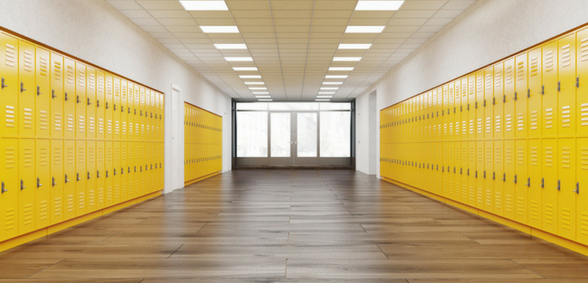
Significant changes to private school inspection processes have been introduced by the Department for Education (DfE). Christine Ryan, CEO of the Independent Schools Inspectorate (ISI), looks at the key details of the new inspection framework and explains how the not-for-profit organisation continues to work with member schools to achieve educational excellence
Before mentioning changes to inspections, let me briefly outline how we currently carry out our work. ISI inspections are led by highly trained and experienced professional reporting inspectors who are joined on inspections by current practitioners with day-to-day experience and understanding of leadership and management in modern schools. During an inspection members of the team will visit lessons, interview pupils, staff and governors, look at pupils’ work and observe activities around the school. If the school has boarders inspectors will visit their accommodation and evening activities. School policies and procedures are checked, along with samples of records and registers.
Two key changes to inspections were implemented last year which have produced a separation of educational performance and regulatory compliance, as detailed below:
- Educational Quality Inspections report on how well the school performs in terms of the achievement and personal development of pupils. These two judgements are each graded on a four-point scale (excellent, good, sound and unsatisfactory). The report explains why a school achieves the outcomes it does by referring to contributory factors such as teaching and pastoral systems. By explaining the reasons for the outcomes the report indicates how well the school caters for pupils of different needs and abilities, how broad the education is, what the atmosphere of the school is like in terms of the ethos, behaviour of pupils and relationships and how well pupils are cared for. Recommendations are made to help schools identify and address areas for improvement and build on good practice.
- Regulatory Compliance Inspections report on whether the school meets the minimum standards set out by the DfE for all independent schools. Action points set out what the school must do to improve and these are followed-up by the DfE.
Variety of inspections
Our reports are published so that parents and the public have access to information about how well a school is doing. However, we do not consider reports to be a substitute for a personal visit to the school in question. Some schools will have older types of report, such as integrated inspections or intermediate inspections for boarding schools; a few schools will have reports arising from short ‘emergency’ visits following a concern being raised with the DfE. Other schools will have ‘material change’ reports because they have sought permission to change how they operate, such as becoming co-educational or extending the age range of pupils they accept. Schools’ should be happy to talk to parents about any aspect of a report once it has been made public and we would encourage this.
Pupil input
All inspections pay particular attention to hearing pupils’ views; pupils are invited to complete a questionnaire in advance of the inspection and inspectors prioritise formal and informal meetings with pupils to ensure that any issues raised can be followed up during the visit. Parents also help ensure that inspections are based on first-hand evidence by completing their own confidential questionnaire. Inspectors use the responses to help plan the inspection and to report on what they find. Individual comments from parents and pupils are not shared with the school and remain strictly confidential.
We’re often asked about similarities with Ofsted and it’s worth explaining, particularly if heads and bursars are fielding similar questions directly from parents. Both ISI and Ofsted report on independent schools’ compliance with the DfE’s minimum standards. However, the inspections apply different frameworks and have different criteria for judging school quality beyond the regulations – this is because inspections are designed to suit the different types of schools that each inspectorate is responsible for.
In particular, ISI’s reporting on pupils’ achievement is designed to reflect the high levels of performance in both curricular and extra-curricular activities typically found in the groups of schools that we inspect, while also making clear how pupils’ test and examination results compare with national benchmarks. The headline grades used by ISI and Ofsted are different to reflect these differences in approach. ISI reports do not provide a single overarching judgement for the school but instead give a clear judgement about key outcomes for pupils and information on the quality of the school’s work that explains why the outcomes are as they are.
Don’t forget to follow us on Twitter and keep up-to-date with the latest news and features
